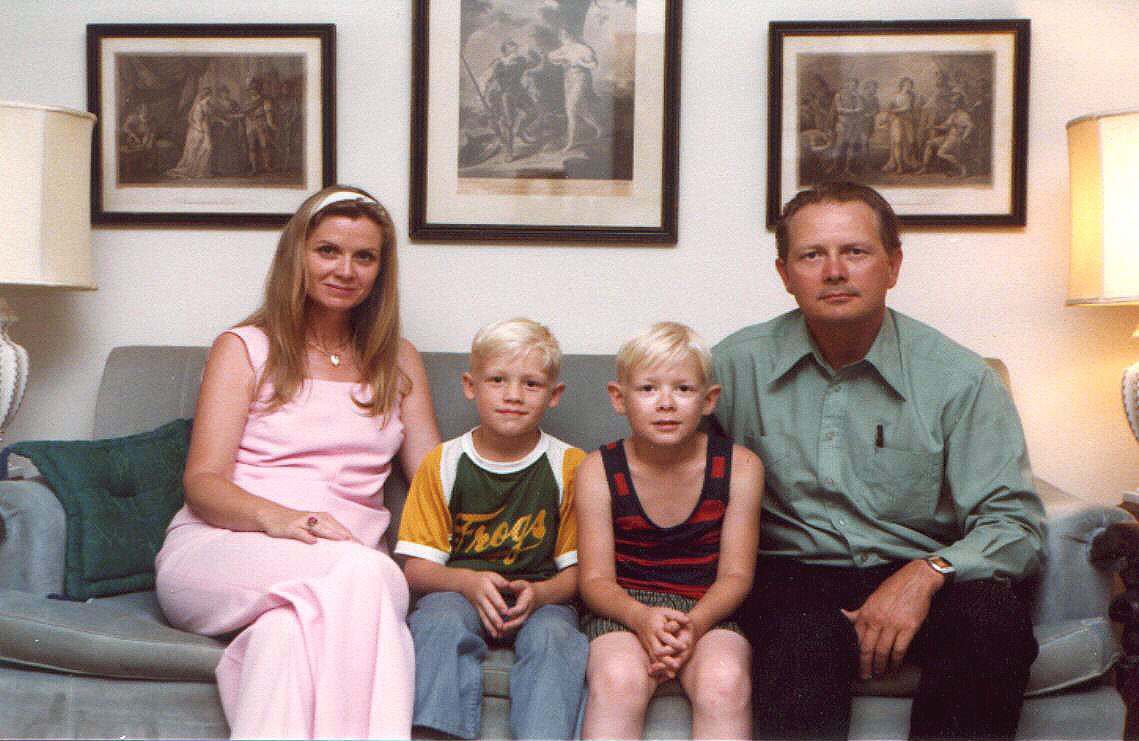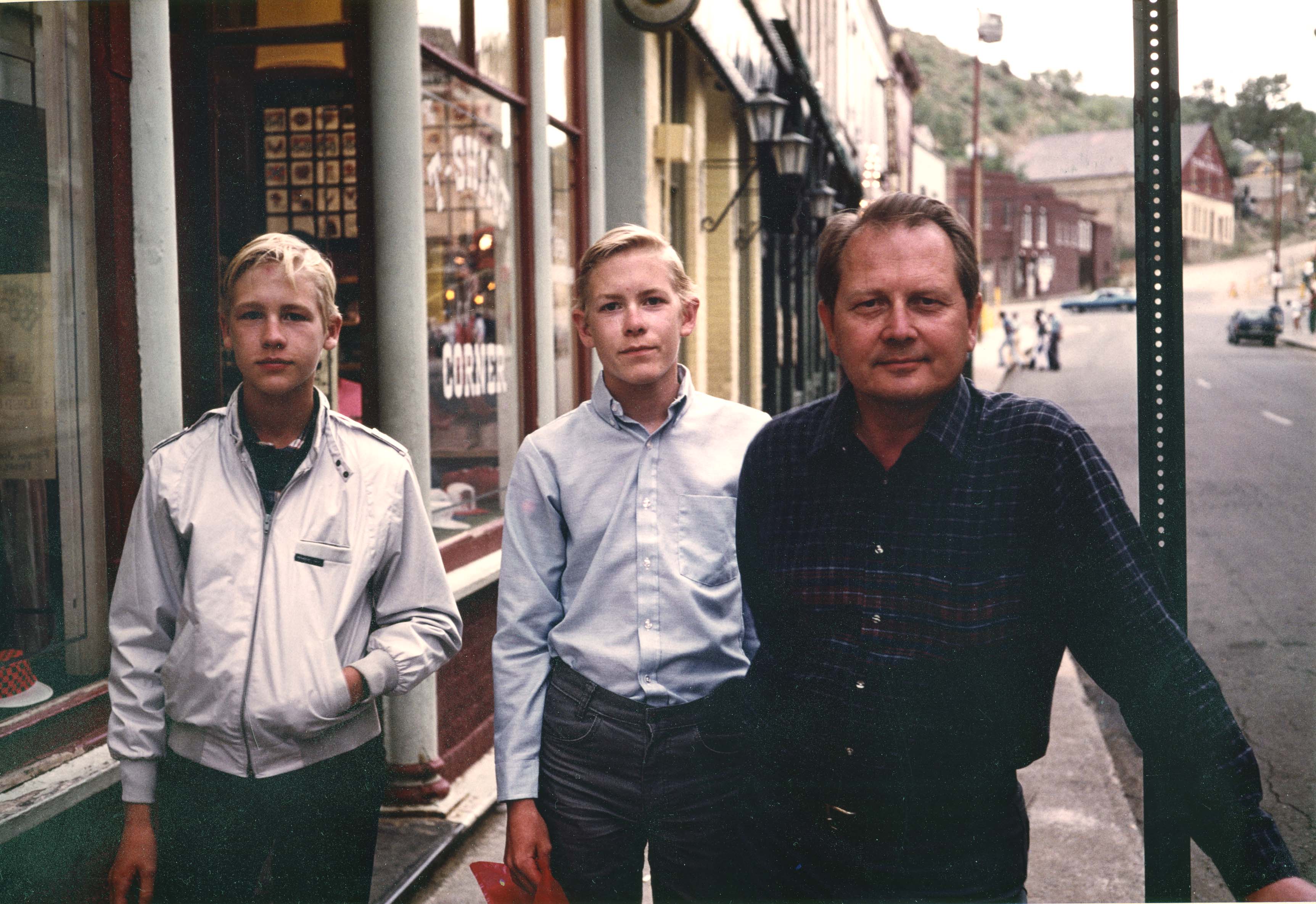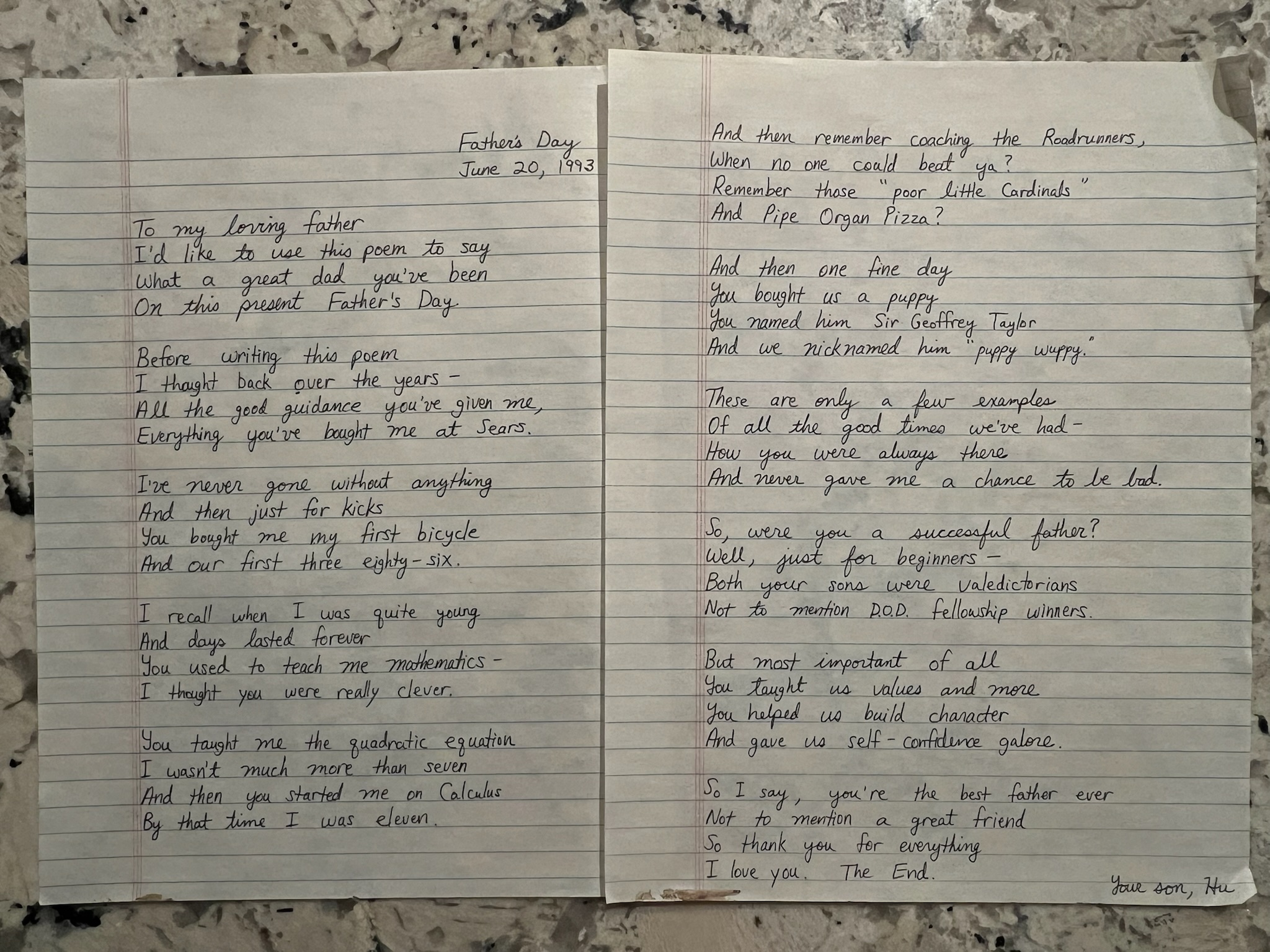Professor H. L. Bray
Personal
Hubert
Edward Bray (1936-2025)
Views
on Parenting
Whereas my dad's parents gave him the maximum freedom to explore and
make mistakes as a child, my dad took nearly the opposite approach
with his kids. He just assumed that any child of his would be
skipping school, racing hot rods and motorcycles, and other
shenanigans with friends instead of doing their homework and going
to bed early, so he was ready for the worst. As a result, my brother
and I never had the slightest chance of ever even thinking about
being naughty or rebellious in any way. My dad patiently explained
to us at an early age why school was important, and why we should do
our best, so we did. As a result, we were both valedictorians in
high school. Even more surprisingly, my brother and I are both math
professors at Duke University, both with Ph.D.'s from Stanford,
living lives that our dad wished for us. Thanks, Daddy!
My dad had a characteristic that I call "force of will." Once he
decided something was good and proper, there was no stopping him.
For example, my brother and I had to do what my dad said to do every
single time, with a good attitude, when he said to do it. No
exceptions. To defy him was to ask for an eyeball to eyeball
encounter which no child could win. On the other hand, my dad only
told us to do things which we knew were probably in our best
interests anyway, so there was no good reason to object. In other
words, my dad had credibility with his kids, much like a great
sports coach like Bobby Knight or Coach K has with their players.
So when my dad said, "Come here, I'm going to teach you a math
lesson," we participated enthusiastically and learned as much as we
could for that hour or two. Then he'd brag about us to our mom about
what a great job we did, every time. Also, when my dad told us to
learn as much as we could about math and physics, we did. When he
told us the most admirable people who ever lived were mathematicians
and physicists like Newton and Einstein, we had no reason to doubt
him. As adults, we see that we were brainwashed a bit - obviously
there are many other admirable people beyond great scientists. My
dad knew this too. Nevertheless, my dad gave us a mindset which
resulted in us getting very good at math and physics.
Another funny thing about my dad is that he used reverse psychology
on us a lot, perhaps inadvertently. For example, no matter how well
we did in school, he'd congratulate us, but still wonder whether or
not that was good enough to get into Rice University. Even when I
came in 4th place in the United States on the USA Math Olympiad,
followed by a bronze medal at the 1988 International Math Olympiad,
my dad still warned me about how smart Rice students were, and how
hard college was going to be. In his mind, Rice University, where
his dad had been a professor, was the ultimate academic environment
- holy ground for him. When I was finally admitted to Rice, with a
full tuition scholarship no less, my dad could not believe it. This
seemed unreal to him. When I won the Hubert Evelyn
Bray Prize in Mathematics, named after his dad, for being the
most outstanding math student at Rice University, it seemed like a
dream to him. When I got an A+ in 12 out of my 13 math classes at
Rice, he thought that was amazing, but still cautioned me that this
is not even close to doing research at an elite level, as the Rice
professors themselves were doing. There would be no shame if
graduate school was too hard for me. Hence, when I did great in
graduate school and got postdoc offers from MIT and Harvard, I never
felt any pressure - just the joy of getting to live my dream. There
is something liberating about feeling like everything you accomplish
is just the cherry on top, so that no matter what happens,
everything will still be great. In other words, instead of saying
"You must do well, or else!" as most people think my dad might have
said to me, he actually said "That's great! But it's almost
impossible to succeed at the next level, so don't feel bad if you
can't." This created the "Challenged accepted!" psychological effect
on me, free of any undue pressure.
Ironically, one of my dad's great strengths was his openness about
his weaknesses. Often my dad would say he "taught by counterexample"
with the hope that we would not repeat his mistakes.
For example, in 1947, at the age of 11, my dad started smoking
cigarettes with an older neighborhood kid. Back then, smoking
cigarettes was promoted in the movies and was seen by an 11 year old
as the manly thing to do. By age 13, my dad told me that he tried to
stop, but couldn't. My dad smoked off and on until his heart attack
and quadruple bypass surgery at age 58, then started up again
briefly, and then finally quit for good around 60 years old. Smoking
was one of my dad's biggest regrets in life. As a result, I would
never dream of smoking. First, because it kills people. Second,
because I wouldn't want to disappoint my dad.
I also do not drink alcohol because of my dad. Though both my
parents did when they were younger especially, my dad came to the
conclusion as an adult that, in his experience, the cons of drinking
alcohol outweighed the pros. Logically, if you look at the death and
destruction due to alcohol, from car crashes to liver damage to
violence and sexual assaults of various forms to plain ol'
regrettable behavior and alcoholism that destroys marriages and
families, often inadvertently, it is not hard to understand my dad's
point that it is safer just to skip the whole thing. Plus, if you
never start, you don't feel like you are even missing anything. My
dad patiently explained all of this to me when I was a kid. It was
his considered opinion that I'd be better off in life if I didn't
drink alcohol, so I didn't. Peer pressure was no match for the
respect that I had, and still do have to this day, for my dad's
considered opinions.
More generally, by the time I was 11, I knew what my dad thought, in
pretty good detail, on most topics, effectively giving me the
wisdom, imperfect as everyone's wisdom is, of a very knowledgeable
45 year old. This was a great gift for my brother and me and gave us
both a great start in life.
Hubert Lewis Bray
September 9, 2025


.jpg)
.jpg)
.jpg)


.jpg)
.jpg)
.jpg)
